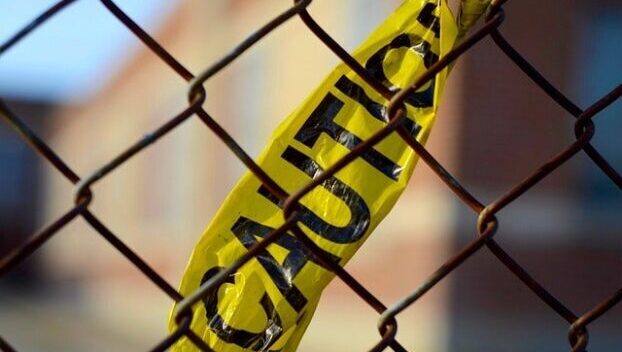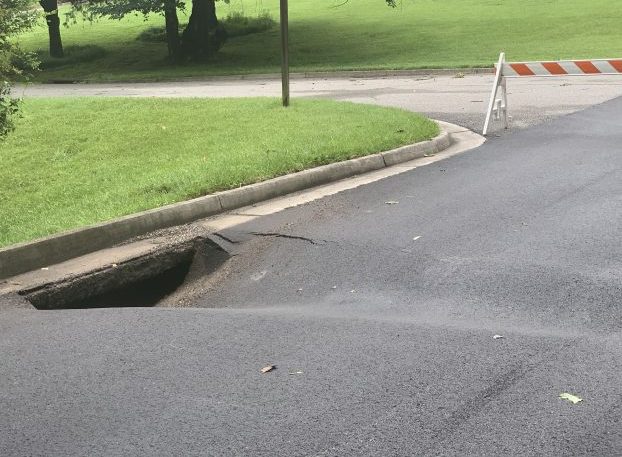Land bank proposal goes back for a hearing in Farmville
Published 3:51 am Friday, October 4, 2024
|
Getting your Trinity Audio player ready...
|
Does Farmville need a land bank? Is that the best way to clean up severely worn down and dilapidated homes in town? A public hearing on the issue is set for next Wednesday, Oct. 9, during the town council’s meeting.
Back in June, residents raised concerns during the last public hearing on the subject. Several argued that while the idea came from good intentions, it was too vague. It didn’t clearly define what qualified as a derelict house. As a result, Farmville Town Manager Dr. Scott Davis and his staff spent the last few months filling in the blanks, working with Town Attorney Gary Elder on the legal language.
What is a land bank?
First, before we get into details of the proposed ordinance, let’s give a quick refresher as to what a land bank is. In the Virginia Code, Section 15.2 talks about the powers that counties, cities and towns have. If you scroll down to Chapter 75 in that section, it outlines the fact any locality can put together a land bank. A land bank’s main purpose is to take over control of properties labeled as ‘blighted’, run-down or derelict, to renovate and restore the buildings in question. The county or town can assemble a land bank group of their own or appoint a non-profit organization and its governing board to handle the task. And yes, we will be explaining what the town’s proposed ordinance considers derelict or blighted.
Instead of the town condemning and tearing down the property, they can file a lawsuit against the owner, seeking approval from a judge to use a land bank in this situation. The town would be asking the judge to give control of the property temporarily to the land bank, which would act as the “receiver”, that is, the entity assigned to renovate the property and get it up to town standards. The group then sets up a bank account for the property, gets an estimated cost for repair and presents a plan to the judge overseeing the case. The land bank group can then enter into contracts with those who will be making the repairs, while providing monthly reports to the judge as the work goes on.
What is defined as derelict?
Trending
Farmville’s proposed ordinance uses the definition taken straight from the Virginia Code. Section 15.2 of the Virginia Code defines “derelict building” as meaning “a residential or nonresidential building or structure, whether or not construction has been completed, that might endanger the public’s health, safety, or welfare and for a continuous period in excess of six months, it has been (i) vacant, (ii) boarded up in accordance with the building code, and (iii) not lawfully connected to electric service from a utility service provider or not lawfully connected to any required water or sewer service from a utility service provider.”
Ok, so let’s recap. In order to be considered a derelict building, it must be in a condition to endanger the public health, safety or welfare, as determined by the town staff. It also must have been vacant for a six-month period and not connected to any public utilities.
But why is a land bank needed in this case? What problem would it solve that the current rules can’t?
“It takes some of the burden off of the town, some of the financial burden,” Elder said at the council’s Sept. 4 work session. “Typically when we get involved, we’re tearing it down. (And) every time we demolish a property right now, we’re footing the bill.”
The difference is that with a land bank, the town would have an opportunity to restore derelict properties, not just demolish them.
How does the process work?
Another issue raised back in June involved the legality of what’s being considered. Basically, how is the town able to take someone’s property? That’s allowed because of the Land Bank Entities Act of 2016. Created by the Virginia General Assembly, it gives towns and counties the ability to set up a land bank and take over derelict properties, but only under certain conditions. A city, county or town can’t just decide to seize the property. They go through a legal process.
First, before anything happens, the property owner is notified that the building in question isn’t up to code. The property owner is given the opportunity to fix it. If they can’t, then the case goes before the circuit court, where the property owner or “a person with an interest in the property, secured by a deed of trust” has another chance to get the work done.
If they can show the court a plan to do the work, within a reasonable amount of time, then they’ll be allowed to do so. Now if someone presents a plan and fails to follow through, the town can bring them back to court and the owner gets to explain to the judge why they didn’t do the work as promised.
So what happens if the property owner can’t or won’t pay the cost of the repairs? Then the property is sold. If the land bank gets more than the cost of the work put in, all of the extra goes to the property owner.
Land bank hearing set
A public hearing and a potential vote after that will take place during Wednesday’s session. That’s set for 6 p.m. in the council chamber, located on the second floor of Town Hall at 116 North Street in Farmville.






